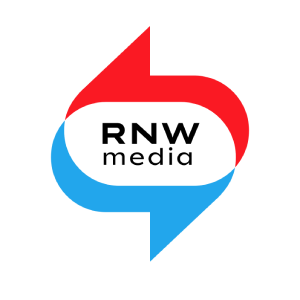World Press Freedom Day
Ethical AI in digital media
Championing AI that empowers people – not just platforms.
As AI continues to reshape the digital media landscape, independent media, civil society groups, and public-interest institutions must lead the way in ensuring its use is ethical, inclusive, and human-centered.
The Haarlem Declaration: Championing AI for Advancing Inclusive, Safe, and Reliable Digital Media Spaces, initiated by RNW Media and co-created with 88 stakeholders from 34 countries, is a rallying call to action. It outlines six shared values and six concrete commitments to guide responsible AI use in digital media – from safeguarding information integrity and minimising bias to amplifying marginalised voices and co-developing ethical AI practices.
Why this matters
AI is already here – 84% of independent media globally are using AI tools. But without ethical guardrails, AI can deepen inequality, spread misinformation, and silence diverse voices. This is especially urgent for media in the Global South, where unchecked AI can entrench power asymmetries and undermine press freedom.
By signing the Haarlem Declaration, your organisation commits to:
-
Transparency and explainability in AI use
-
Ethical data practices that respect rights and dignity
-
Authenticity in content creation and distribution
-
Bias reduction to prevent harm and discrimination
-
People-first approaches that prioritise communities
-
Sustainability by considering AI’s environmental impact
Take action now
Signing the Haarlem Declaration means joining a global alliance committed to putting people – not profit or platforms – at the heart of AI in media. This action is a bold step towards reclaiming digital spaces, ensuring they remain inclusive, safe and accountable. This isn’t just about reacting to AI’s risks – it’s about rewriting the rules of engagement and shaping a future that works for everyone.
The Declaration moves beyond principles and into practice. It outlines six concrete actions signatories commit to:
Develop and apply an Ethical AI Checklist within editorial workflows
Create space for dialogue and learning through open forums, circles and peer exchanges
Document and reflect on real-world AI experiences to guide responsible implementation
Use media platforms to elevate underrepresented voices and challenge dominant AI narratives
Generate rigorous, evidence-based insights into AI’s impact on journalism and media
Advocate for collective accountability and ethical standards across the media sector
Our growing list of signatories
- Habari RDC (Congo)
- Benbere (Mali)
- Manasati30 (Yemen)
- The World Association for Christian Communication (WACC) (Canada & UK)
- Hikaya Center for Civil Society Development (Jordan)
- NairoBits Trust (Kenya)
- Radio Ergo (Kenya)
- Talk Africa (Kenya)
- AkhbarMeter Media Observatory (Egypt & Germany)
- Write to Left Media BV (Netherlands)
- University of Utrecht, Inclusive AI Lab (Netherlands)
- University of Lagos Unilag Radio (Nigeria)
- Yayasan Mata Pelajar (Indonesia)
- Bangladesh NGOs Network for Radio and Communication (Bangladesh)
- Biozid Climate Institute (Bangladesh)
- Community Media Network (Jordan)
